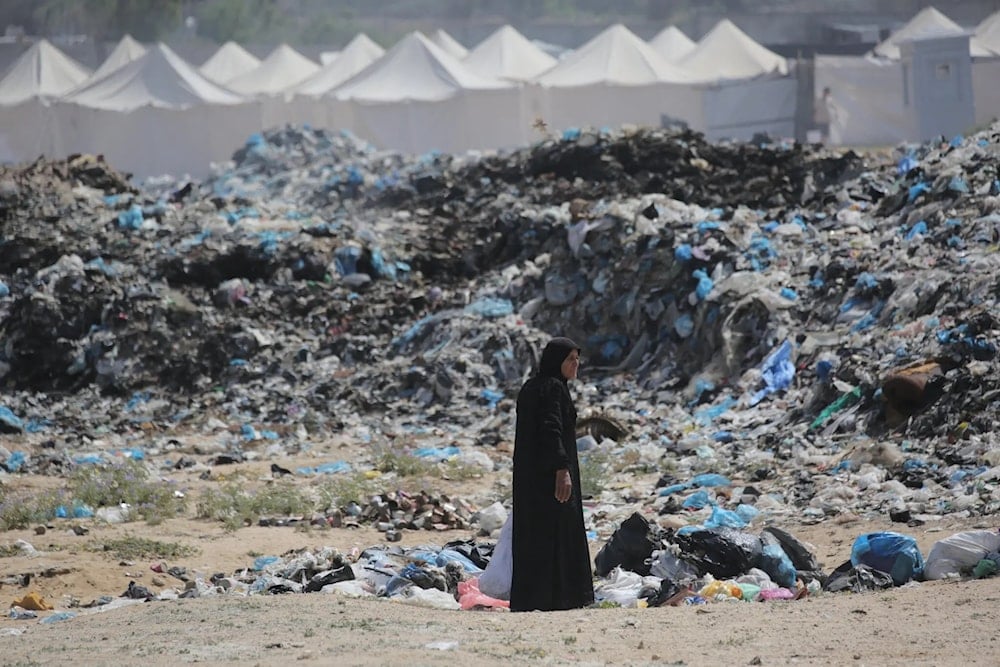Debris from destruction adds to health crisis in Gaza: UN
After eight months of Israeli bombardment, Gaza now has over 39 million tons of debris, an initial assessment reveals.
-

A woman salvaging items from a growing waste dump along a tent displacement camp west of Nuseirat, in central Gaza in May 2024 (AFP)
The Israeli war on Gaza, which has now exceeded eight months, has devastated buildings and infrastructure throughout the Gaza Strip, resulting in over 39 million tons of debris and worsening an already critical health crisis, according to a preliminary United Nations assessment of the environmental impact of the conflict released on Tuesday.
In the latest of a series of reports from UN agencies detailing the scale of devastation in Gaza and the health hazards resulting from the war, the UN Environmental Program found that the millions of tons of rubble in the Strip contained unexploded ordnance, asbestos, and other hazardous substances, as well as human remains.
The UN agency also found that the war has disrupted "almost all" environmental management systems and services, creating new hazards. It reported that all water sources in Gaza have been affected, along with wastewater treatment and disposal facilities.
Last week, UNRWA reported on social media that 330,000 tons of waste had accumulated in or near populated areas in Gaza by early June, posing severe environmental and health risks. Additionally, the UN Satellite Center reported that about 65% of Gaza's road network was damaged as of last month.
"The collapse of sewage, wastewater, and solid waste management systems and facilities has had major impacts on the environment and people," the report said. It noted an increase in the rates of acute respiratory infection, diarrhea among children under five, scabies, lice, and jaundice reported by the World Health Organization since early in the war.
Gazans and humanitarian groups report rationing water supplies, leading to neglected hygiene and sanitation needs, and the use of unsafe alternative water sources, such as agricultural wells with brackish water, exposing people to pesticides and chemicals.
UNRWA has accused the Israeli occupation forces of impeding efforts to address environmental and health hazards in Gaza. The agency has cited a lack of access to fuel, compounding sanitation problems, and said the Israeli military has blocked UNRWA’s access to landfills at a time when many of its sanitation centers, machinery, and trash trucks have been destroyed.
Aggravating the difficulties for humanitarian agencies, Gaza has become the most dangerous place in the world for aid workers, the UN said on Monday, noting that at least 250 have been killed in Gaza since October 7, including nearly 200 who worked for UNRWA.

 3 Min Read
3 Min Read








